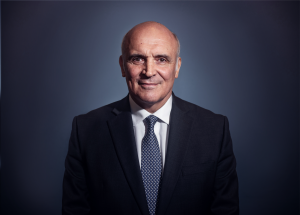BUENOS AIRES (Dow Jones)–As the financial crisis trips up economies around the world, Argentina’s fall may the hardest.
In the six years through 2008, Argentina enjoyed the strongest sustained economic growth in its 200-year history. Just a few months ago Argentine President Cristina Fernandez described the economy as the envy of the world, bragging of "Chinese-like" growth rates that had averaged 8.5% annually.
Now many economists are singing a different tune and say the country will contract this year.
"We’re already in a recession," said economist Jose Luis Espert of Espert & Asociados. "We have been so since the fourth quarter and it’s going to get worse."
Espert forecasts a 3% contraction in gross domestic product this year. That would mark a 10-percentage-point turnabout from the 7% growth rate cited in official statistics for 2008.
That would be a significant reversal. The U.S. economy, for instance, is forecast to shrink 1.6% this year, according to the International Monetary Fund, but that’s from a more moderate growth rate of 1.1% last year. As for China, the IMF expects growth to slow to 6.7% from 9% last year.
A few analysts are still holding out hope for a small Argentine expansion this year, but most expect the economy to shrink by at least 1% or 2%.
Argentina is suffering like other commodity-producing countries from a decline in demand for key exports like soybeans and corn. But Espert says the biggest problem is a drop in consumer confidence that began last March when farmers clashed with Fernandez over export taxes and accelerated with plans to nationalize pension.
Diminishing exports reduced GDP by 3%, he said, but the farm conflict lasted months and included nationwide roadblocks and a ban on grain sales. Then the president announced in October she would nationalize private pension funds.
By Espert’s calculations, the farm dispute spooked investors so much that it spurred capital flight totaling 5% of GDP, while the pension fund reform led to an outflow worth 15% of GDP.
"The pension fund takeover is what started the recession," he said. "When the government said it would take peoples’ pensions, people started to wonder if the government would go for their savings too. That’s why you saw people take their money from banks. That’s why confidence plummeted."
Economic consultant Freddy Thomsen says there are some countries where GDP is crashing on a par with Argentina’s. He cited Japan, where growth could drop 12 percentage points from a year ago.
Ireland, Latvia and Russia are also suffering quick reversals on the global financial crisis. But Thomsen agrees that domestic factors seem to have pushed Argentina’s economy to the edge.
"In one way or another politics shook confidence," he said. "It didn’t cause panic but it affected small savers and left retail investors feeling less comfortable."
Thomsen said Argentina’s good luck on a few other factors has soured. The boom years were fueled partly by rising commodities prices but those prices have fallen and on top of that the country has been hit hard by the worst drought in decades.
"You can’t blame that on the government or the global crisis," he said.
Meanwhile, Thomsen says Argentina didn’t save any money when times were good and may pay a heavy price for that decision.
"There are those who are prepared for a rainy day and those who aren’t," he said. "Argentina is in the latter camp.
"Argentina also proudly said it didn’t need anything from the International Monetary Fund and other lenders. And they may be regretting that now," Thomsen added.

